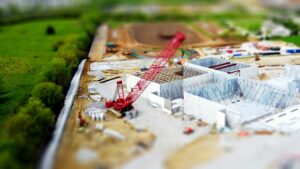
High angle image of a washing machine with drain pipe leaking water
As a homeowner, dealing with appliance problems can be frustrating and costly. However, before rushing to call a professional repair service, there are some steps you can take to diagnose the issue yourself. By knowing how to identify common appliance problems, you may be able to save time and money by fixing the issue on your own. In this blog post, we will explore some tips on how to diagnose your appliance problems before calling a professional.
Start by Identifying the Problem
The first step in diagnosing appliance issues is to identify the problem at hand. Take note of any strange noises, leaks, or other malfunctions that your appliance may be experiencing. Look up the symptoms online or consult the owner’s manual for troubleshooting tips specific to your appliance.
Check for Simple Solutions
Before assuming the worst, check for simple solutions that may resolve the issue. For example, if your dishwasher is not draining properly, it could be due to a clogged filter or drain hose. Similarly, if your refrigerator is not cooling adequately, check if the temperature settings are correct and if the coils are clean.
Conduct Basic Inspections
To further diagnose appliance problems, conduct basic inspections of key components such as filters, hoses, and coils. For instance, if your washing machine is leaking water, check for any visible cracks or damages in the hoses. If your oven is not heating evenly, inspect the heating elements for any signs of wear or damage.
Use Diagnostic Tools
In some cases, using diagnostic tools such as multimeters or thermometers may help pinpoint the root cause of appliance problems. These tools can provide valuable information on voltage levels, temperature readings, and other important data that can aid in troubleshooting and repairing appliances.
Know When To Call a Professional
While diagnosing appliance problems on your own can be rewarding and cost-effective, there are instances where it is best to call a professional repair service. If you are unsure about how to proceed or if the issue requires specialized knowledge or equipment to fix, do not hesitate to seek help from a qualified technician for an appliance repair service or maintenance checkup.
In conclusion, learning how to diagnose your appliance problems before calling a professional can save you time and money in the long run. By following these tips and taking proactive steps toward troubleshooting appliance issues on your own, you can become more self-sufficient as a homeowner and potentially avoid unnecessary repair costs. Remember that safety should always come first when dealing with appliances – if you are unsure about how to proceed or encounter complex issues during diagnosis, do not hesitate to seek professional assistance. With practice and patience, you can become more confident in handling common appliance problems on your own.


